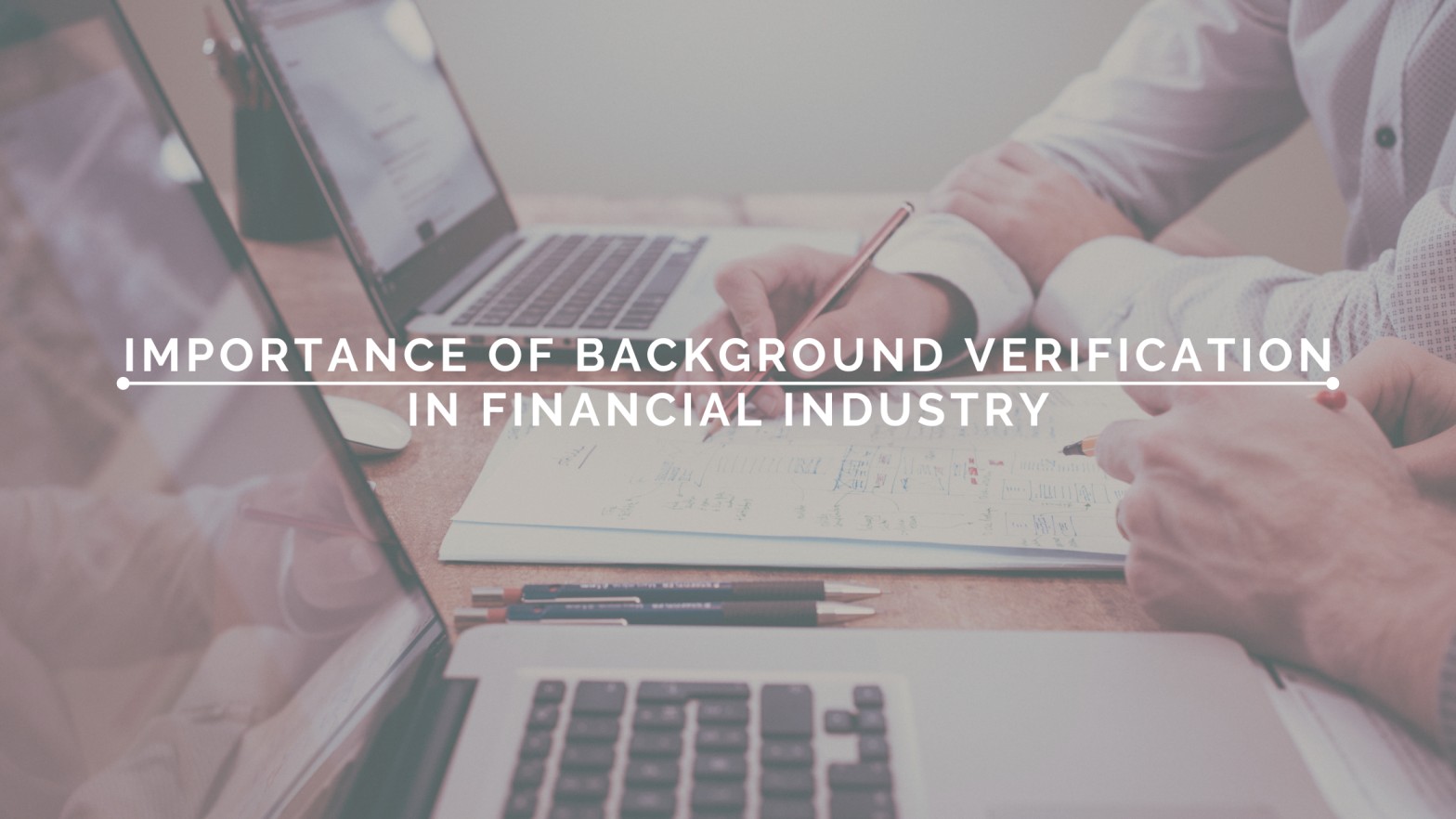
Importance of Background Verification in Financial Industry
Background verification are essential in companies when it comes to recruiting, accepting loans, provision of services, among other items. Financial institutions must carefully choose who is eligible to use their services due to increased security requirements and complex financial regulations. For seamless services, it is important to know the identity and background of a potential client or customer. When performing a Background verification as a financial institution, there are many reports you can run and consider before extending credit.
Table of Contents
The Following are Seven of the most Widely used Background Verification:
Identity Verification:
The following Background verification are integrated with Identity Verification:
- Passport verification
- Driving License check
- Voter ID check and more
Education Check:
One of the most common forms of fraud in India is misrepresenting information about educational qualifications. Fake documents are created to obtain access to a range of loan items, job opportunities, and enrollment in educational institutions, among other things. Conducting a comprehensive Background verification that involves education checks is one of the best ways to fight false documents.


Multiple databases are used to verify the following facets of education:
- Roll or Registration number of the candidate
- The course passed or pursued by the candidate
- The year of course completion
- The genuineness of pass certification
- The affiliation and accreditation check of the institute/course
Address Verification:
According to an AuthBridge survey, there was a gap in more than 6% of the candidates’ given addresses in 2017. Physical address checking is an important part of Background verification since it is the first-place employers, businesses, credit card companies, and banks look if there are some discrepancies.
Financial Institutions can effectively monitor the following information about the physical address by using mobile-enabled location tagging which employs cutting-edge technology:
- Is the address given correct?
- If the resume or document’s address refers to the real physical address
- How long has the nominee or individual been residing at the given address?
- Whether the person owns the home or has leased it.
- Relationship between the nominee and the person who verifies the address information.
Criminal Records Check & Police Verification:
Financial Institutions search a variety of public records, including those kept by various courts, police records, and CBI, SEBI, and RBI lists, to derive actionable, factual information about a person’s criminal background or litigations. As part of the full background search, all civil and criminal litigation records are checked. Hiring people who are responsible for handling sensitive and confidential information and transactions in financial institutions needs a thorough Background verification.
Reference Check:
In 2017, more than 3% of reference checks had more than one difference, according to an AuthBridge report. Many institutions do not have the time or money to perform a comprehensive reference search, which is crucial to verify customer information. One of the common methods to perform reference checks can be in the form of telephonic verification to assess the candidate’s performance, expertise, and abilities.
Checking Employment History:
In the financial services industry, employment verification of the customer is critical. Employment background verification services include a detailed review of the candidate’s employment history, including previous positions held, duration of employment, and reason for departure. This provides institutions with an accurate description of the candidate’s professional life.
Checking Credit History:
When considering whether a candidate is eligible for financial services, it is important to look at their credit background. A credit check can be conducted by looking at bankruptcies, tax liens, derogatory accounts that have been paid or charged off, and active accounts that contain open loans relating to the nominee. Many organizations have started concentrating on an individual’s financial health to measure several personal qualities such as dependability and integrity over the years. The argument goes that bad credit scores indicate a person’s inability to manage his finances, which would inevitably affect his work efficiency.
While all businesses benefit from background verification, banks and financial institutions must receive the most up-to-date records on any prospective customer. It is possible to collect background check information yourself if you are interested. However, not only will it take time and money to collect all the documents you require–which will include carefully reviewing court records, criminal records, and national databases–but certain records are unavailable to the public.
By partnering with a third-party background screening company, you will be able to receive all the information you need quickly. Working with a reputable Background verification firm will save you time and money while also ensuring that you remain compliant in the customer screening process.
Here at MIMO, we are aware of the high levels of transparency and complex legislation that the financial sector must adhere to comply with central, state, and local laws. MIMO offers all-inclusive background check services with a focus on protection to provide you with the most reliable and up-to-date details.
f6
For more information and to avail our Background verification services.
Sign upLike this article?
More To Explore

What Factors Should Organizations Consider Before Outsourcing Their Internal Audit Functions?
+91 1141182211 Outsourcing has become a strategic choice for many organizations looking to streamline operations, reduce costs, and enhance efficiency.

Outsourcing Internal Audit: Evaluating the Upsides and Downsides for Your Organization
+91 1141182211 In today’s dynamic business environment, companies face increasing pressure to enhance efficiency, manage risks effectively, and ensure compliance

A Background Verification Guide: Frequently Asked Questions and Their Answers
+91 1141182211 Background verification (BGV) is a crucial process used by employers to ensure they are hiring candidates with accurate

